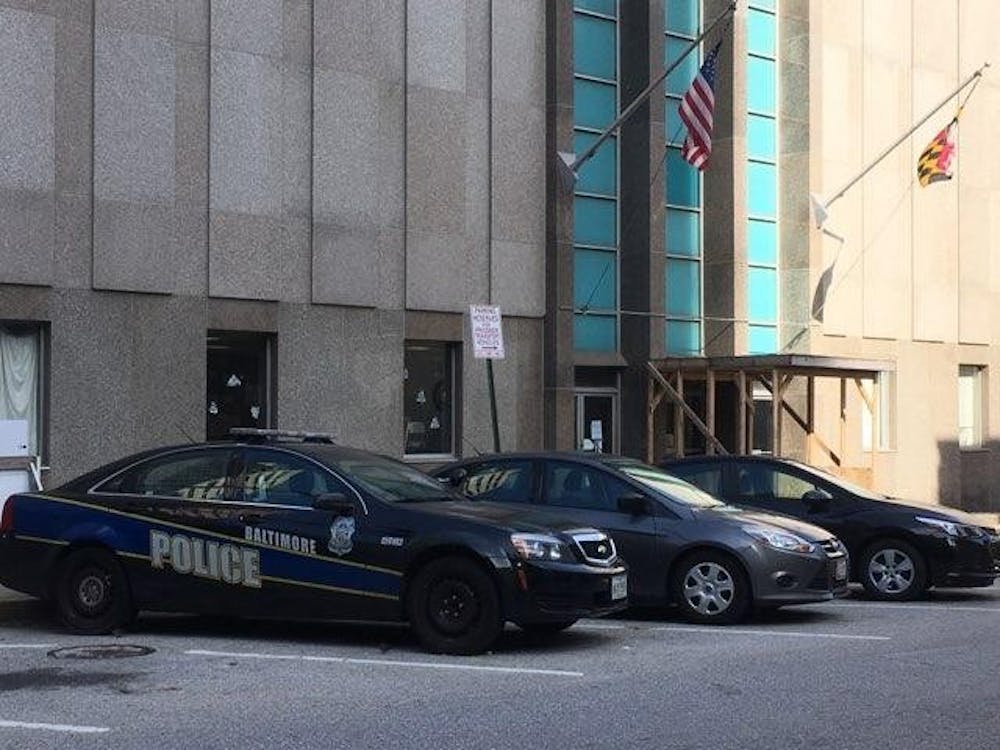University officials have submitted their list of 13 nominees for the Johns Hopkins University Police Accountability Board to the Maryland Senate. If confirmed, these nominees will be responsible for assessing the policies of the Johns Hopkins Police Department (JHPD), presenting community feedback and ensuring transparency.
An eight-member nominating committee whittled down the original pool of 121 applicants and presented University leadership with 40 recommendations, which the administration then used to select their nominees.
Members of the accountability board will serve two-year terms, with the exception of the student representatives, who will serve one-year terms.
Student nominee Shanice Guthrie, a junior in the Krieger School of Arts and Sciences (KSAS), told The News-Letter that she believed the University had chosen a group of nominees that represented a diverse array of experiences and priorities.
“We come from different backgrounds with different beliefs toward Baltimore and Baltimore police. We’re not all the same people, and I do like that we have different views and different things we want to fix,” she said.
Ph.D. fellow Richard DeShay Elliot, who applied for the accountability board, did not share this optimism. He argued that the accountability board will likely fail to adequately oversee the JHPD.
“I do not hold this opinion because I lack trust in the members. I hold this opinion because I know that if this accountability board functions in service of the community, the University and its Board of Trustees will actively work to de-fang them,” he said.
The University has nominated Assistant Professor of Epidemiology Lorraine Dean, History Professor Pier M. Larson and Assistant Professor of Emergency Medicine P. Logan Weygandt as faculty representatives on the board.
Community members Edward Kangethe, Sonja Merchant Jones and Noah Patton have been nominated to represent the areas surrounding the East Baltimore, Homewood and Peabody campuses, respectively.
Executive Assistant to the President of Johns Hopkins Hospital Regina Gail Malloy, Director of Finance and Administration Jed McCormick and Krieger Senior Programmer Analyst Alexander McLin have been nominated as the staff representatives.
Additionally, Krieger School of Arts and Sciences undergraduates Guthrie and Pritika Parmar and School of Medicine students Katie J. O’Conor and Kwame Romero-Sackey have been nominated to represent the student body.
Parmar told The News-Letter that although concerns surrounding the police are valid and should be considered, it is time to work towards making the JHPD effective and transparent.
“At this point, regardless of my views, the police department will be formed. A greater focus should be placed on ensuring that the very real concerns... are adequately addressed in the upcoming review and policymaking process,” she said.
McLin told The News-Letter that he had applied to be nominated to the board because he believed it was important to have his experiences as a deaf man represented there.
“I felt that I could contribute to our community by bringing my voice and life experience to the table as a person who has been deaf since birth. Since the new police department will be interacting with people from different backgrounds, including those with disabilities, I wanted to be an advocate,” he said.
Dean told The News-Letter in an email that she trusted in the common sense of the mission she hopes all the University nominees share.
“I would hope that we all have the same interest: to better protect residents of the Baltimore community... with a specific emphasis on those within the Hopkins system,” she said. “This police force may be an opportunity for Hopkins to do something truly unique and different: to have a police force with true community accountability.”
However, Elliott expressed concerns that the accountability board will not be sufficient to constrain the JHPD.
Similarly, last year, a group of students called JHU Sit-In occupied Garland Hall in protest of the private police force and the University’s contracts with Immigration and Customs Enforcement.
In a collective statement to The News-Letter, JHU Sit-In expressed doubts over the accountability board’s effectiveness.
“As long as the University continues its path to form a private police force, it will exacerbate tensions with neighboring communities,” they wrote. “The University has no institutional capacity to counteract the culture of police brutality that is endemic to police and anti-immigrant forces locally, nationally, and globally. We insist: Hopkins must retreat from forming an armed, private police force.”
Dean said that she does not necessarily disagree with the Sit-In.
Rather, as a fellow opponent of the private police force, she said she that sees her nomination as a chance to actively represent community concerns.
“I am one of the opponents, and I will continue to be vocal about why this is an important issue, especially to the black and brown residents... [and] low-income residents of Baltimore,” she said. “While I think many individual law enforcement officers may be good people, the system of policing in our country is problematic and has been co-opted as a tool for institutionalized and interpersonal discrimination. This police force may end up protecting some to the detriment of both.”
Dean said that her main concerns include racial profiling, an increase in firearms on campus and false allegations. She hopes that the accountability board will be able to lessen the threat of these issues.
The Accountability Board plans to meet for the first time after all members are approved.





